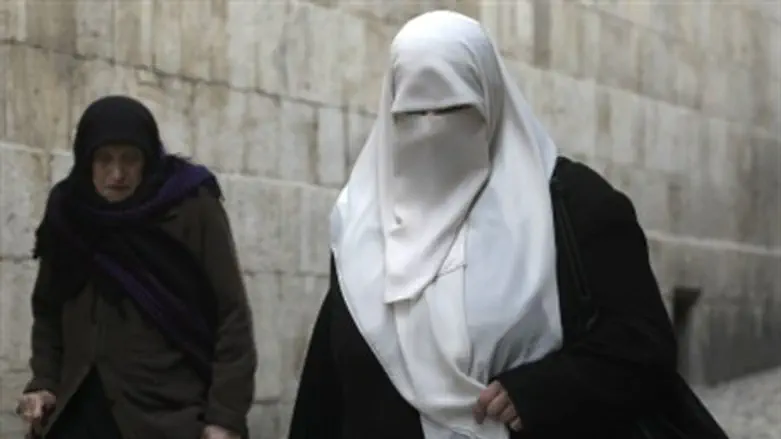
A recent survey of 7 Muslim-majority Middle Eastern countries has revealed conflicting viewpoints in Saudi Arabia, a country that doesn't let women drive and is often considered one of the most repressive nations in terms of women's rights.
While nearly 2 out of 3 in Saudi Arabia think women should cover all but their eyes in public, nearly 50% say women should choose how they dress. The latter figure is close to the response in more liberal Lebanon with its large Christian population, and is far more permissive than Iraq, Pakistan or Egypt.
Mansoor Moaddel, lead author of the survey published by the Middle Eastern Values Study at the University of Michigan, claims to CNN that the results show Saudia Arabia has "a considerable liberal leaning."
"Saudi has had a religious government for a long time," stated Moaddel. "People tend to develop an oppositional attitude."
While Saudi Arabia recently allowed its first female lawyer, the nation's religious police enforcing Sharia law have a far from stellar record on women's rights. In March 2002, religious police stopped schoolgirls from escaping a burning school in Mecca because they were not wearing headscarves and black robes, nor were they accompanied by a man. As a result, 15 girls died and 50 were injured.
Moaddel argues that Egypt is the most conservative of the Muslim nations, as only 14% there said women should choose their dress, the lowest results among the 7 nations.
Furthermore, 19 in 20 Egyptians said a women should be required to obey her husband, the highest result in that question.
The findings back research last November which placed Egypt the lowest in the Arab world in terms of women's rights, with Saudi Arabia coming in third worst. A UN report last April found that 99.3% of Egyptian women and girls had been sexually harassed.
However, Moaddel assesses the Egyptian position as being sexist without relation to Islam. "The problem with Egypt is not just religion, it is an intellectual trend," said the researcher, adding "Egyptians have become more sexist in the past decade. They have become less religious, less supportive of Sharia (Islamic law), but on the issue of gender, more conservative."
The survey found that the generally agreed mode of dress for women in public among the 7 Muslim nations consisted of a tight white headscarf covering everything but the face.
Interviews with 2,005 people in Saudi Arabia and at least 3,000 in each of the 6 other countries made up the data for the survey.